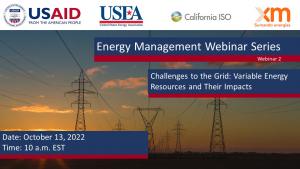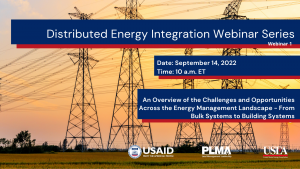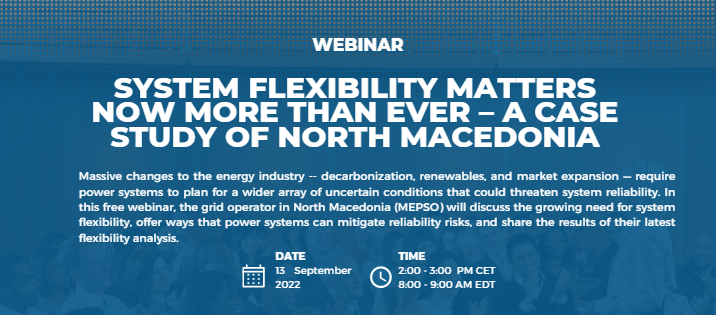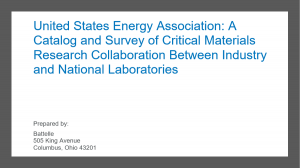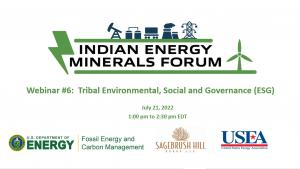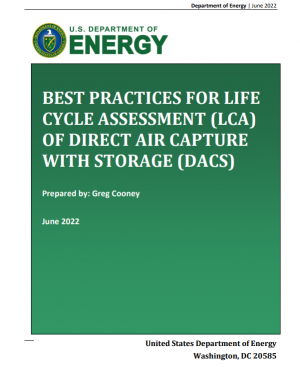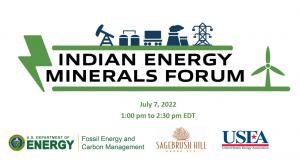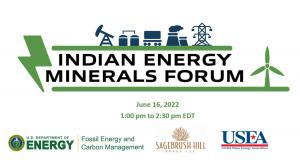September 14th, 2022
In this first webinar of the Energy Management webinars hosted by USAID's Bureau for Development, Democracy, and Innovation (DDI) had guest speakers Scott Coe and Rich Barone from the Peak Load Management Alliance (PLMA). Scott and Rich covered trends and best practices on energy management and provided an overview of the different levels of energy management systems. They also walked through the Smart Grid Architecture Model (SGAM) to demonstrate smart grid use cases for current and future implementations on the grid.
August 25th, 2022
Report can be found on right side of this page under "presentations".
August 11th, 2022
Direct Air Capture (DAC) has been identified as one of the few technologies that can remove carbon dioxide from the atmosphere at climate-relevant scales. To have a meaningful impact on climate goals, DAC must be scaled quickly from the handful of small-scale pilots currently in operation to megaton-scale deployments.
July 21st, 2022
ESG is an acronym for Environmental, Social, and Governance. ESG takes the holistic view that sustainability extends beyond just environmental issues. ESG is best characterized as a framework that helps stakeholders understand how an organization is managing risks and opportunities related to environmental, social, and governance criteria.
July 28th, 2022
As one of the performance elements of the Carbon Negative Shot, robust life cycle greenhouse gas (GHG) accounting is a critical element for Carbon Dioxide Removal (CDR). Life Cycle Analysis/Assessment (LCA) is an existing framework that is well suited to evaluate the environmental implications of CDR.
June 22nd, 2022
In an effort toward reducing greenhouse gas emissions, many countries are retiring generation fuelled by fossil fuels and scaling up clean energy. This reduction is mostly realized through decommissioning existing plants, oftentimes well before their planned retirement, and in part because clean energy can provide lower-cost power relative to fossil fuels.
June 16th, 2022
This webinar’s discussion will highlight regional hydrogen hubs and supporting tribal self determination to replace tribal industries impacted by climate change. The U.S. Department of Energy's (DOE's) is accelerating breakthrough technologies that support abundant, affordable, and reliable clean energy solutions to address the climate crisis and rapidly reach the Biden–Harris Administration's net-zero carbon emissions goal by 2050.
Pages

